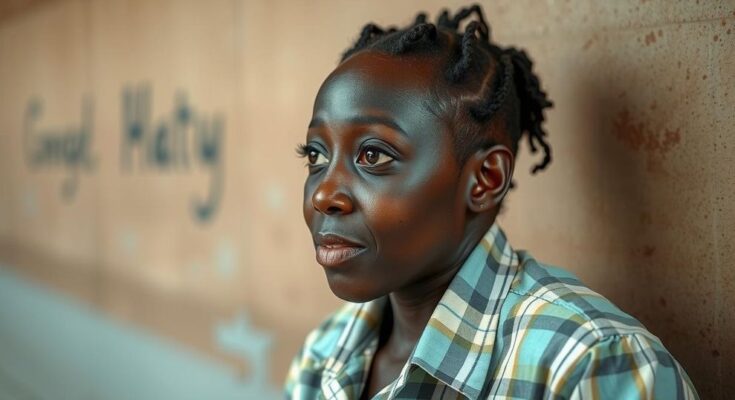The prolonged conflict in eastern Congo has created a severe mental health crisis, with a dramatic increase in individuals seeking support and rising suicidal thoughts. Displaced populations in camps face dire conditions exacerbated by ongoing violence from armed groups like M23, contributing to anxiety, depression, and PTSD. Despite minimal funds available for mental health services, organizations are implementing community-based support strategies to aid recovery.
Years of relentless conflict in eastern Congo are resulting in a severe mental health crisis, with many individuals reporting escalating distress and a lack of adequate support. A poignant account from Nelly Shukuru illustrates the despair experienced by many, as she contemplated taking her life amidst dire circumstances in a displacement camp. Reports indicate that the number of individuals seeking mental health care has surged over 200% within the last year as violence and displacement destabilize communities. The M23 rebel group, backed by Rwanda, has intensified the ongoing violence, displacing millions and exacerbating conditions in overcrowded camps near Goma.
Psychologists report alarming increases in anxiety, depression, and suicidal ideation among affected populations. Tragically, reports of suicidal thoughts have spiked from five in January to over 120 monthly. Without sufficient resources, mental health services remain critically underfunded, with less than 30% of the estimated $180 million needed for mental health initiatives secured this year.
In these camps, life is fraught with trauma, as individuals face daily reminders of violence and loss. Many, including women survivors of sexual violence, recount harrowing experiences that continue to haunt them. Despite attempts by the army to maintain safety within the camps, reports from locals and humanitarian workers indicate ongoing fears and an absence of effective accountability for perpetrators of violence.
Psychosocial support groups, such as those from Action Against Hunger and War Child, are making strides toward providing essential assistance to mentally distressed individuals. Initiatives that promote community-based help and coping mechanisms are being implemented, although stigma surrounding mental health issues often hampers widespread outreach. Individuals like Josephine Mulonda have found some respite through techniques that help manage anxiety, while children’s programs facilitate expression through movement and play. Yet, many remain at risk, grappling with the profound effects of displacement, loss, and societal violence as their futures remain uncertain.
The Democratic Republic of Congo has been marred by extensive violence and conflict since the late 1990s, particularly in the resource-rich eastern regions bordering Rwanda. The resurgence of armed groups, particularly the M23, has led to widespread chaos and population displacement, with millions forced to flee their homes. Many individuals end up in displacement camps under deplorable conditions, which are not conducive to recovery and mental well-being. As the humanitarian crisis deepens, there is a growing recognition of the urgent need for mental health support. However, the funding and resources allocated to address these issues remain minimal. In this context, mental health issues are exacerbated by trauma from violence, loss of livelihood, and deteriorating living conditions in the camps. Reports indicate a concerning rise in mental health disorders, including PTSD, depression, and anxiety among displaced populations. The increasing threats to psychosocial well-being illustrate the severe implications of sustained conflict on mental health, highlighting the urgent need for comprehensive mental health services and support systems.
In conclusion, the ongoing conflict in eastern Congo has precipitated a significant mental health crisis with profound implications for individuals living in displacement camps. The experiences of trauma and loss are compounded by a lack of mental health resources and support, leading to escalating rates of anxiety, depression, and suicidal ideation. While some initiatives exist to provide assistance, funding shortages and societal stigma remain major barriers. This requires urgent attention and action from both national and international stakeholders to address mental health needs amidst the humanitarian crisis.
Original Source: www.ap.org




